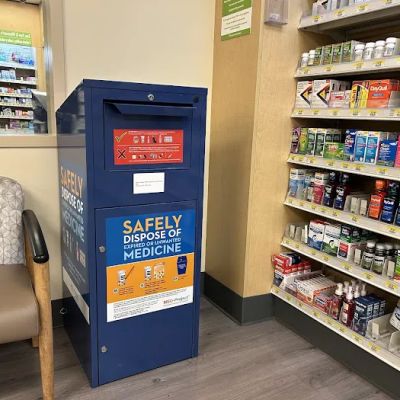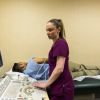Living with Heart Disease: How It Affects My Daily Life and Ways to Cope
When I was first diagnosed with heart disease, I had no idea how it would change my daily life. Heart disease affects not only your physical health but also your emotional well-being, relationships, and even your outlook on life. The journey from diagnosis to understanding how to manage and cope with this condition can be overwhelming, and it's something many people face every day. I want to share my experience with heart disease, how it impacts daily activities, and the strategies that have helped me manage the condition.
Heart disease comes in many forms, including coronary artery disease, heart failure, arrhythmias, and others. While each type has its own set of symptoms and challenges, the one thing they all share is the profound effect they have on how you live your life. Whether it’s the need for lifestyle changes, managing stress, or adapting to a new way of living, heart disease can disrupt almost every part of your day-to-day routine. But with the right coping mechanisms and support, it is possible to lead a fulfilling and active life despite the challenges. Let me walk you through how heart disease affected my daily life and the steps I've taken to cope with it.

1. Physical Limitations: Adjusting to New Realities
One of the first things I noticed after my diagnosis was how quickly my physical capabilities started to change. Simple activities that I once took for granted—walking up a flight of stairs, carrying groceries, or even taking a short walk—became significantly more challenging. The fatigue and shortness of breath I experienced were constant reminders that my body was no longer functioning the way it used to.
This sudden shift in my physical abilities was frustrating. At first, I tried to push through it, thinking that if I just kept going, everything would be fine. However, I soon realized that this approach was not only ineffective but also harmful to my health. I had to learn to listen to my body and acknowledge my limitations. For instance, I started using a pedometer to track my steps, and I set small, manageable goals each day, like walking a little further or taking breaks during long tasks. Over time, I became better at pacing myself and recognizing when I needed rest. Even though my stamina was not what it used to be, I found a new balance that worked for me.
Atlanta Heart Specialists
atlanta heart specialists
4375 Johns Creek Pkwy #350, Suwanee, GA 30024, USA

2. Emotional Struggles: Coping with Anxiety and Stress
Another major impact of living with heart disease is the emotional toll it takes. I noticed that anxiety and stress became constant companions. The fear of a heart attack or another major health issue would creep up unexpectedly. Sometimes, it felt like I was walking on a tightrope, constantly aware of my heart’s rhythm and the possibility of something going wrong.
To cope with these emotions, I sought professional support. Therapy, specifically cognitive-behavioral therapy (CBT), was immensely helpful in changing my mindset about living with heart disease. CBT helped me manage my anxiety by focusing on changing negative thought patterns and developing healthier ways of thinking about my condition. In addition, I practiced mindfulness and deep breathing exercises to help me stay grounded during moments of stress. I also joined a support group for people with heart disease, which allowed me to share experiences and hear how others were coping. This sense of community was incredibly reassuring, reminding me that I wasn’t alone in my journey.
3. Adapting to a New Diet: The Importance of Nutrition
One of the most significant lifestyle changes I had to make after being diagnosed with heart disease was my diet. I had always enjoyed eating foods that were high in salt, sugar, and unhealthy fats, but I quickly learned how detrimental these could be for heart health. I needed to adopt a heart-healthy diet, which meant cutting out many of my favorite comfort foods and replacing them with fruits, vegetables, lean proteins, and whole grains.
Initially, the idea of changing my eating habits seemed daunting. But I slowly realized that healthy eating didn’t have to be bland or boring. I began experimenting with new recipes and flavors that I could incorporate into my meals. For example, I learned to make delicious salads with roasted vegetables, quinoa, and homemade vinaigrettes, and I found that swapping red meat for fish provided both health benefits and a refreshing change of pace. Additionally, I consulted with a nutritionist who helped me create a plan that worked for my specific needs. Over time, eating heart-healthy became a habit, and I started to feel better both physically and mentally.
4. The Role of Exercise: Finding the Right Balance
Exercise is a crucial part of managing heart disease, but it can be tricky to figure out what type and intensity of exercise is safe when you're dealing with a heart condition. For me, the idea of exercising felt intimidating at first. I had to be mindful of overexerting myself, as pushing too hard could worsen my symptoms. However, I learned that regular, moderate exercise is essential for maintaining cardiovascular health.
My doctor recommended activities like walking, swimming, and gentle yoga. At first, I started with short, easy walks around my neighborhood and gradually built up my endurance. Eventually, I felt confident enough to try yoga, which helped not only with physical strength but also with stress management. I found that the deep stretching and breathing exercises that yoga offered were particularly soothing for my heart and helped reduce anxiety. My fitness routine became a vital part of my daily routine, and I found that maintaining a consistent exercise schedule significantly improved my overall well-being.
5. Managing Work and Social Life: Striking the Right Balance
Living with heart disease also affects how I manage work and social commitments. I had to re-evaluate my approach to both, considering my health needs while trying to maintain a fulfilling career and social life. I found that I could still work and enjoy my social life, but I needed to set boundaries and prioritize my health.
For instance, at work, I had to take frequent breaks to avoid stress and fatigue. I explained my condition to my colleagues and boss, who were supportive and understanding. This communication made a huge difference in my ability to manage my responsibilities while taking care of my health. In my social life, I had to make sure to plan ahead and avoid overextending myself. I found that smaller gatherings and low-stress activities, like going for a walk or having dinner with a few close friends, were much more enjoyable and less taxing on my heart.
6. The Importance of Regular Check-ups and Monitoring
Finally, regular check-ups and monitoring are essential when living with heart disease. I learned quickly that staying on top of my health meant being proactive in managing my condition. I made sure to schedule regular visits with my cardiologist to track my heart’s progress and ensure that I was staying on the right treatment plan. Monitoring my blood pressure, cholesterol levels, and other key health indicators helped me stay informed and empowered to make decisions about my care.
In addition to professional check-ups, I also used tools like blood pressure monitors and fitness trackers to keep track of my health at home. These devices helped me feel more in control of my condition and provided valuable data that I could share with my healthcare provider. Taking ownership of my health through regular monitoring and check-ups has been vital in preventing complications and ensuring that my heart disease is managed effectively.
Living with heart disease is undeniably challenging, but by making mindful choices and adopting strategies for coping, I’ve been able to find a new normal. I’ve learned to balance my health needs with my personal goals and have discovered that, with the right mindset and support, it is possible to live a fulfilling life with heart disease.
If you or a loved one is living with heart disease, consider seeking professional guidance and support. At HeartCare Hub, we can help you find the best doctors, hospitals, and services to support your heart health journey.





















Deborah Heart and Lung Center
deborah heart and lung center
200 Trenton Rd, Browns Mills, NJ 08015, USA